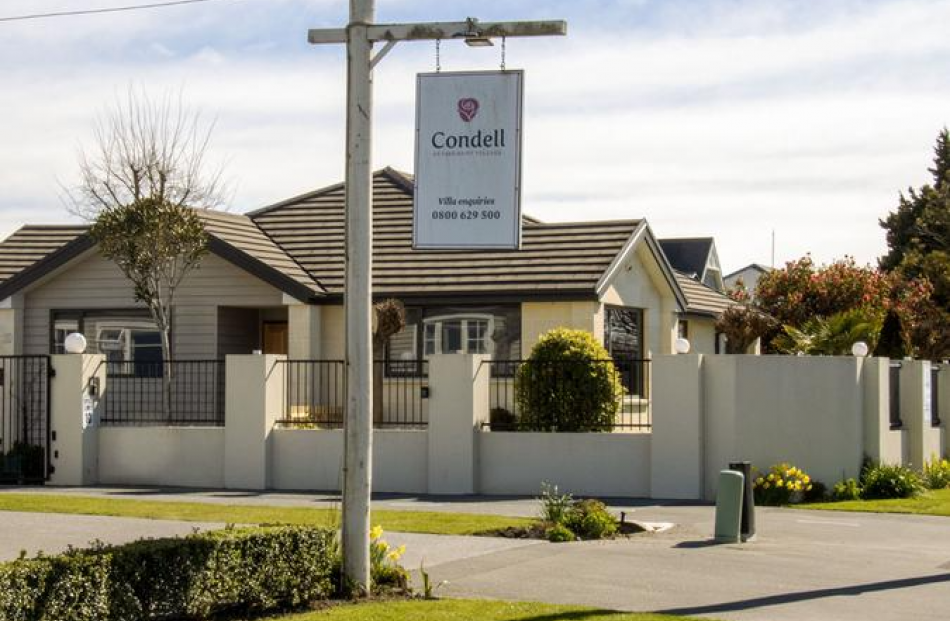
The findings of the dispute involving five Condell Retirement Village residents stemmed from a Christmas Day barbecue in 2023 and led to new alcohol rules and a chain of strongly worded emails.
The matter escalated into a formal complaint, which is now published on the Retirement Commission website.
Sparrow, her now late husband John and the three other residents argued Condell Retirement Village, which owns and operates the complex, had breached their occupation rights agreement by prohibiting alcohol in communal spaces, changing access to services, and exposing them to unfair treatment. They also objected to the tone of the correspondence sent to all residents.
The residents said the Bryndwr village’s management falsely accused them of drinking alcohol in the barbecue area on Christmas Day 2023, despite the area being alcohol-free.
But Sparrow said there was a major flaw in the case - they were not drinking. She said she was only an occasional drinker.
Village management sent an email to residents in January stating the alcohol ban in the shared barbecue area would now apply to all shared common areas.
Sparrow, her now late husband John, and three other residents were among those accused.
While the group was not named in management’s emails, Sparrow said it was obvious to other residents who the email was referring to.
Disputes panellist David Carden upheld the actions of village management, but also said a solution “may have been able to be found well before the parties became as polarised as they had”.
Carden said the decision was not based around whether alcohol consumption actually occurred. And as the management emails did not identify the residents, there was no basis to find they were directly implicated.
Sparrow said she was unhappy with the decision and the way the situation had been handled by management.
“We’re just absolutely flabbergasted and dismayed by all of this because we hadn’t been drinking,” she said.
She said she drank pomegranate juice that Christmas, while her husband had a zero-alcohol beer.
She believes the manager, who saw the group from about 40m away, wrongly assumed they were drinking alcohol.“We were blamed for the ban so some other residents started attacking and blaming us for the ban. It’s been just awful and caused a divide in our small village,” Sparrow said.
The ban has since been loosened but the village’s ‘happy hour’ remains cancelled.
“All of us residents should be allowed to drink what we like in and outside our homes and have that choice,” Sparrow said.
One of the village’s directors, Paul McCormack, said he was “very happy” with the decision.
“We’re happy with the way we have conducted ourselves throughout this whole process.”
Responding to the group’s claim they did not drink alcohol on the day in question, McCormack said “that’s up to them”.
The dispute process has cost $20,000, of which the residents have been ordered to pay $2100.
Retirement Village Residents Association of New Zealand president Brian Peat said the dispute highlighted a broader issue facing seniors.
“Our licensing laws are not fit for purpose. The lack of clarity around the rules and regulations means older New Zealanders are being treated as legal liabilities instead of people entitled to live full and social lives in their own homes.”
The association sent a letter to Associate Justice Minister Nicole McKee last week pushing for a retirement village exemption to current liquor licensing laws, giving the right to serve or permit modest amounts of alcohol in shared spaces without a commercial licence.
Village booze ban initially upheld by Retirement Commission
The decision summary from disputes panellist David Carden ruled in favour of the village operator.
He ruled there was no evidence in the documents provided that identified the complainants and therefore no basis to find they were implicated in what was said in those letters, the decision said.
There was also nothing objectionable in the wording of the letters and nothing that did not treat them with courtesy or disrespect their rights.
If they considered they had been harmed by the letters, they could correct that by clarifying matters to other residents, the decision said.
McCormack told the Herald he was delighted with the decision, which upheld the actions of the owners.
“We are very happy with our conduct.”
Asked why the village did not get a licence to allow alcohol to continue to be served in common areas, McCormack said the directors had decided against taking that step.
The dispute had cost $20,000, of which the residents had only been ordered to pay $2100 in costs, he said.
Alcohol remains banned in common areas of the village, McCormack said.













